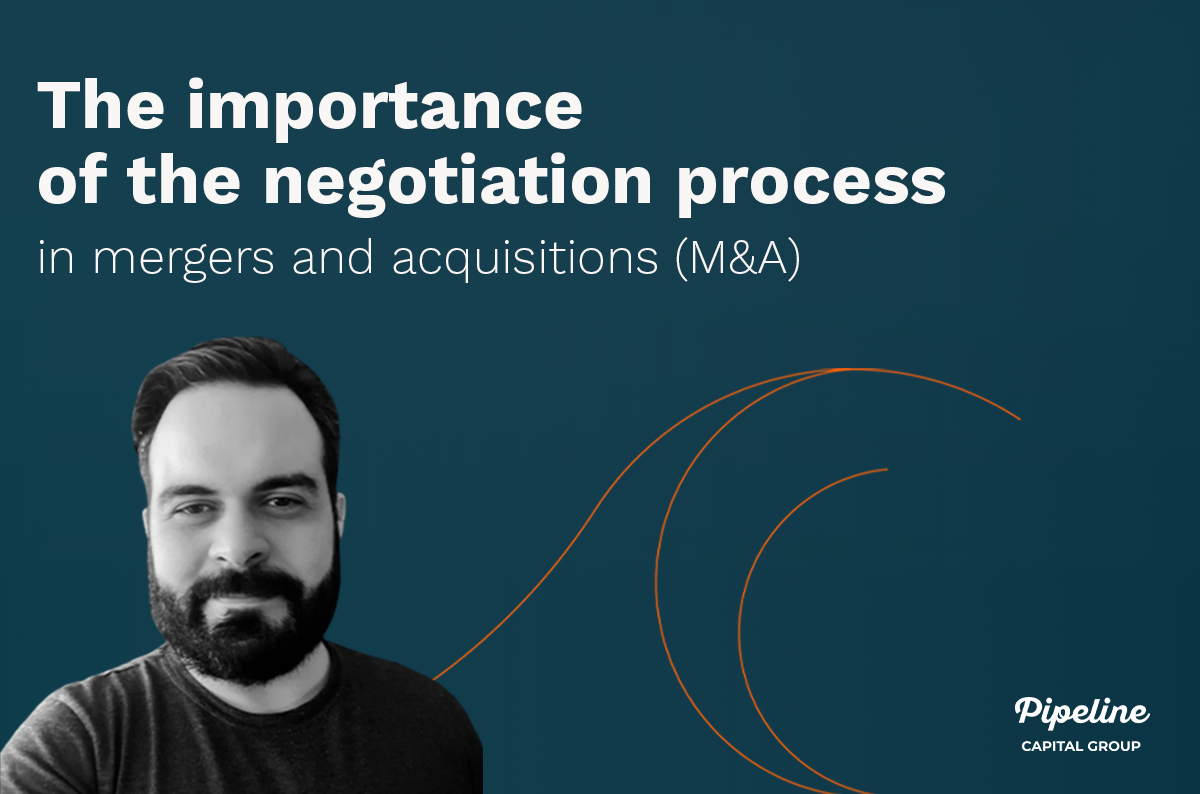Mergers and acquisitions (M&A) are complex processes that involve a range of technical aspects, such as financial evaluations, legal and tax matters, pricing structures, payment terms, and equity stakes.
In daily M&A discussions, I often come across spreadsheets and rehearsed narratives from both buyers and sellers, each trying to extract more value from the process. While none of this is irrelevant—and I’m quite familiar with the “band that’s playing”—I believe that in most negotiations, the human side is a crucial element that’s often overlooked or pushed to the background amid endless technical debates.
Effective negotiation is essential to the success of any M&A transaction. It involves not only numbers, contracts, and technical discussions but also human motivations, interpersonal relationships, and posture. After all, even with all the advances in machine learning, AI, and similar technologies, no algorithm has yet been created that knows how to offer a cup of coffee to break the ice in a meeting!
It’s not uncommon in the M&A industry to find buyers whose offers are completely misaligned with the goals and ambitions of the entrepreneurs. Likewise, it’s frequent to find entrepreneurs with unrealistic expectations about their business’s value. That’s where the negotiation process becomes vital. Being well-prepared to manage these divergences and find common ground is essential for a successful transaction.
To understand why the negotiation process is important, it’s also crucial to understand why it’s complex. Aligning the interests, ambitions, and motivations of all parties involved in an M&A process is an art—perhaps even a bit of magic!
Key Elements of Negotiation in M&A
Motivation
Understanding the underlying motivation behind a transaction is essential for successful negotiation. The parties involved in an M&A deal have different goals and expectations that go beyond financial aspects. For example, a seller may be motivated by emotional reasons—such as the legacy of their company—while a buyer may be focused on operational synergies. Recognizing these motivations allows negotiators to build proposals that meet both parties’ interests, increasing the likelihood of a favorable agreement.
An M&A process involves multiple stakeholders, each with their own motivators and interests:
- Entrepreneurs/Sellers: Motivated to get the best possible value, preserve the company’s legacy, and ensure employees’ well-being. In many cases, ownership may include multiple entrepreneurs, each with distinct motivations, from financial interests to concerns about cultural continuity and employee safety—requiring a personalized negotiation approach.
- Buyers: Seek operational synergies, market expansion, access to technology or talent, and a strong return on investment. Buyers may be driven by strategic goals (long-term growth), opportunistic deals (market timing), or operational improvements (efficiency and execution).
- Advisors/Consultants: Focused on a successful transaction and client satisfaction, while building a reputation in the market. Their ability to deliver exceptional results strengthens their credibility and opens doors to future deals.
- Lawyers: Concerned with legal compliance, risk minimization, and client protection. Reputation, credibility, and legacy are also fundamental to their professional standing.
- Accountants and Auditors: Responsible for financial evaluation and due diligence, ensuring the financial statements accurately reflect the company’s reality. Their analyses play a critical role in minimizing risks for all parties.
- Banks and Financial Institutions: Focused on financial viability, funding structures, and safeguarding their financial interests. Ensuring that loans are repaid and that financial risk is mitigated is central to their involvement.
- Negotiators: Often employees with personal and professional goals—career growth, internal recognition, performance bonuses, and market reputation. These motivations, often driven by ego and human emotion, can influence negotiation dynamics.
- Regulators: Ensure that the transaction complies with all applicable laws and regulations, particularly with regard to anti-competitive practices.
Interpersonal Relationships
Interpersonal relationships play a critical role in M&A negotiations. Building trust and mutual respect enables open, honest communication—essential for resolving conflicts and finding creative solutions. Techniques like active listening and empathy are key to developing strong relationships. Demonstrating genuine interest in the other party’s concerns can help disarm resistance and pave the way for productive dialogue.
Cultural Aspects
Cultural awareness and adaptability are high-value skills that can greatly increase the chances of success in international (cross-border) negotiations.
Understanding cultural dynamics is essential for building trust and, in many cases, is a prerequisite for successful negotiations. Culture affects communication, decision-making, conflict management, and more.
Knowing decision-making styles (centralized vs. collaborative), etiquette protocols, and norms shows respect and can be pivotal in certain processes.
Posture and Negotiation Techniques
The stance adopted during negotiation can significantly affect the outcome. A collaborative approach, rather than a competitive one, tends to be more effective in M&A. This means focusing on creating joint value, not just splitting existing value.
Key techniques include:
- Careful preparation
- Defining BATNAs (Best Alternative to a Negotiated Agreement)
- Making strategic concessions
Recommended Reading
I’m often asked by entrepreneurs and M&A professionals: “Which book would you recommend to develop a soft skill?”
I believe one of the most essential soft skills is negotiation, particularly its human side. In that spirit, I recommend the book How to Win Friends and Influence People by Dale Carnegie. It offers powerful insights that can be applied directly to the M&A negotiation process. Carnegie emphasizes the importance of understanding and valuing others’ perspectives—a critical skill for any negotiator.
Key takeaways from the book include:
- Don’t Criticize, Condemn or Complain: Focus on constructive solutions and a positive tone.
- Give Honest and Sincere Appreciation: Acknowledge and value the other party’s efforts to foster cooperation.
- Arouse in the Other Person an Eager Want: Tap into their motivations and interests to build alignment.
- Be a Good Listener: Listening attentively can reveal key information and build trust.
While the technical aspects of M&A are undoubtedly important, the negotiation process must not be underestimated. Effective negotiators understand that human motivations, interpersonal dynamics, and collaborative postures are just as crucial as numbers and contracts.
So, as you enter an M&A process, remember that negotiation is both a science and an art—one that involves both mind and heart.
Be well advised on this journey.

